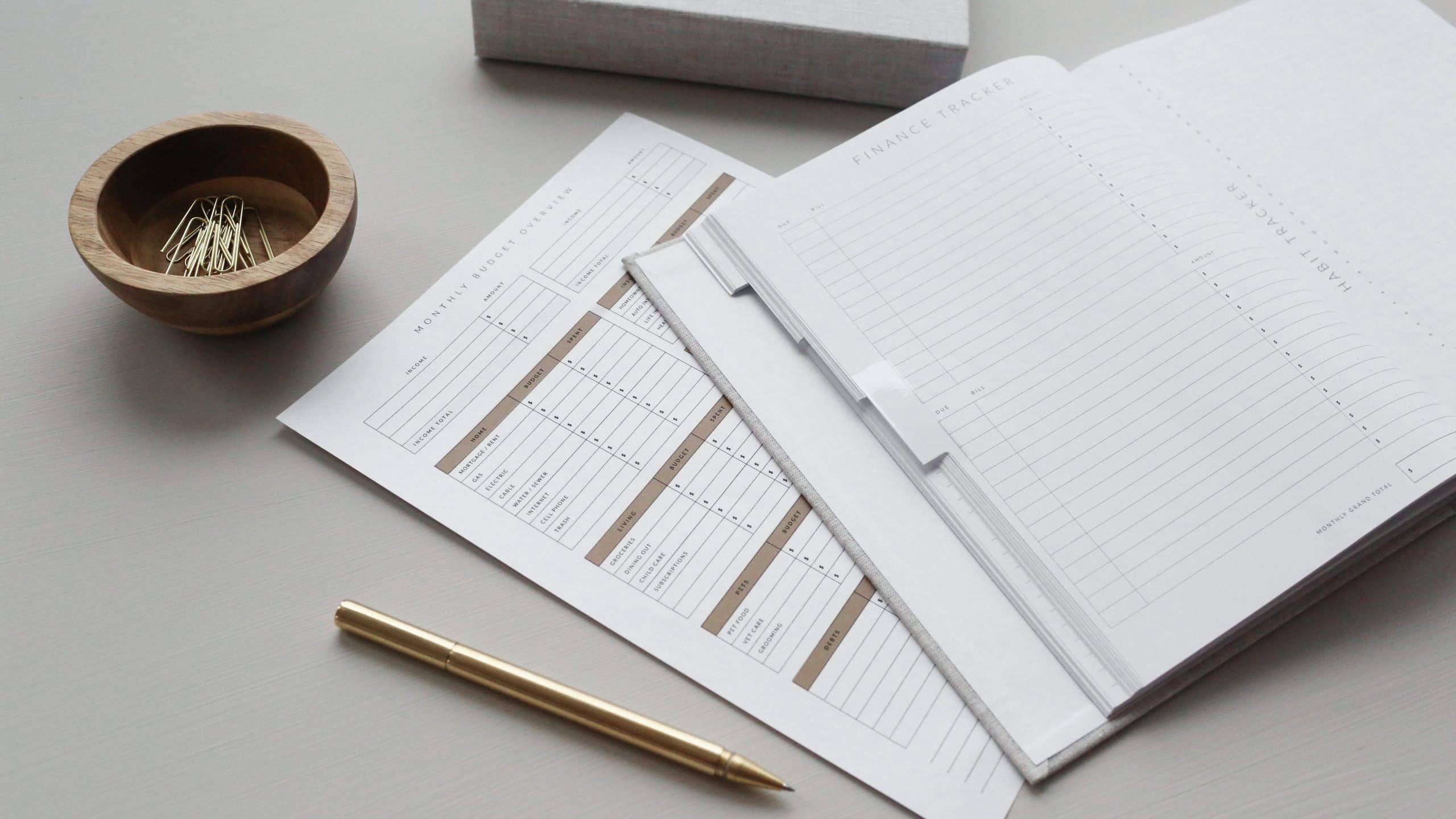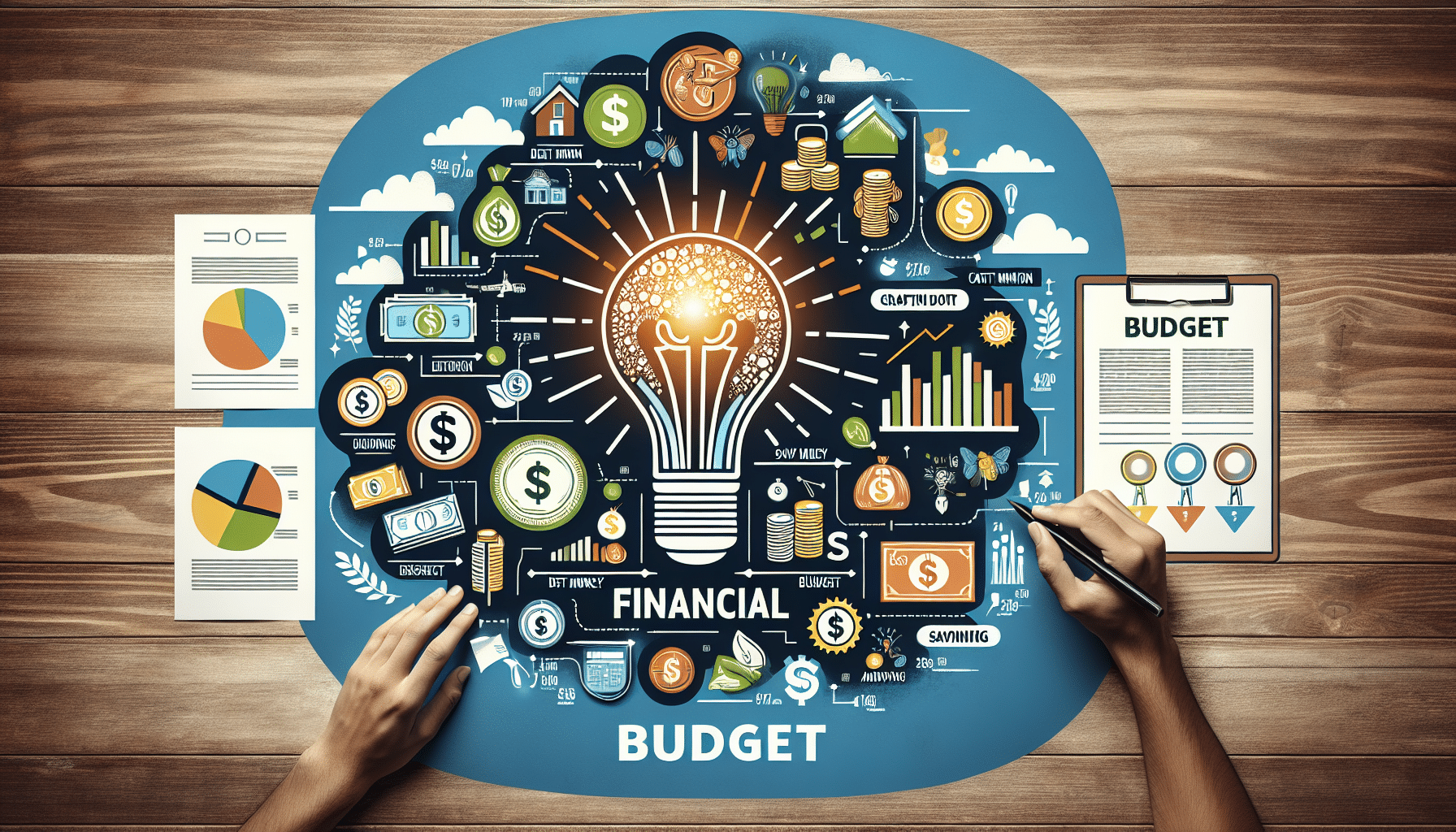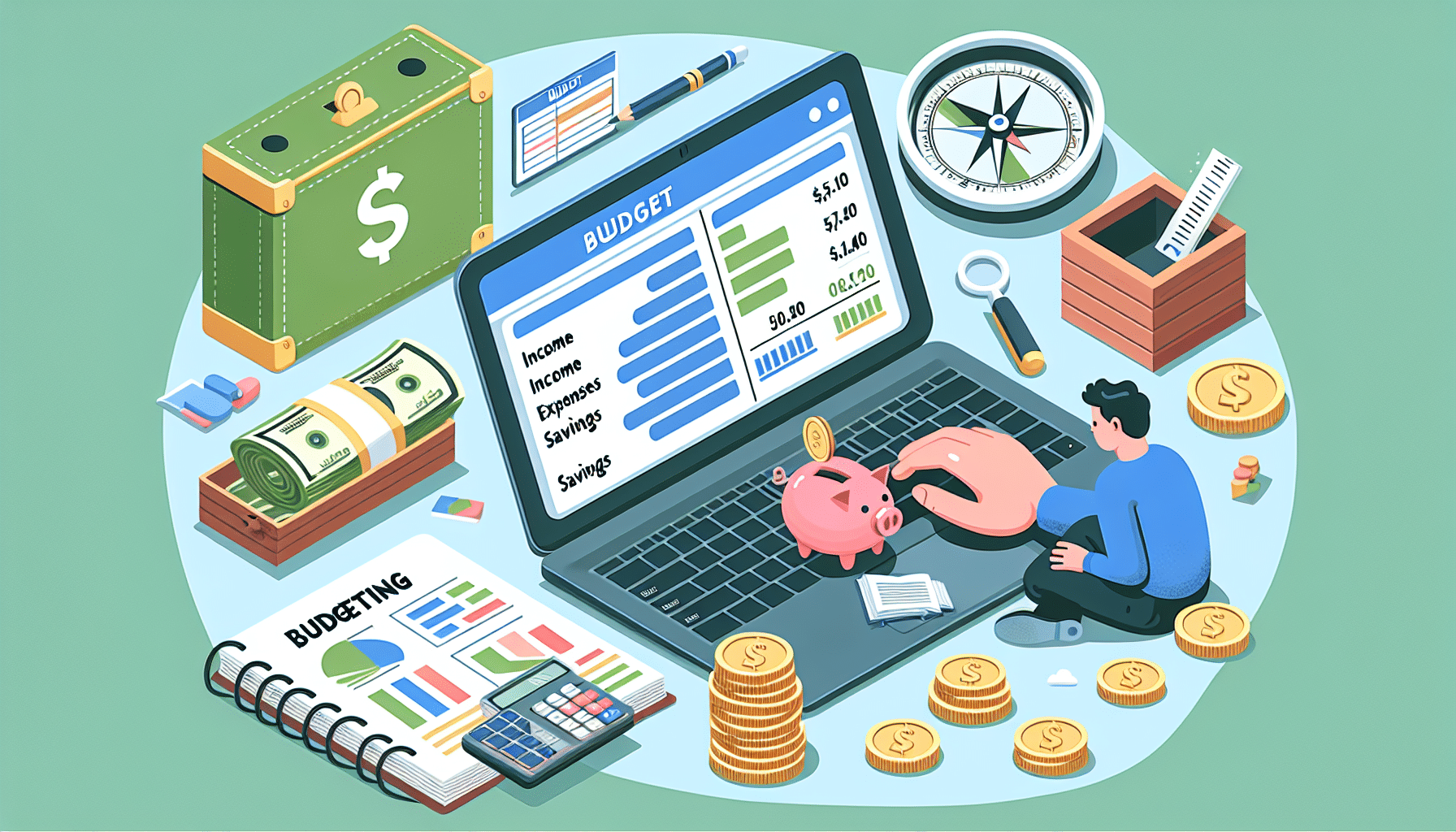If you want to achieve financial success, then having a budget is absolutely essential. A budget serves as a roadmap, helping you stay on track towards your goals and making sure your spending aligns with your priorities. In this article, we'll explore the importance of budgeting and provide you with an example budget based on a $46,000 annual post-tax salary. From essential expenses like rent and insurance to variable categories like hobbies and vacations, this budget covers it all. Remember, though, that it's crucial to customize your own budget according to your unique circumstances and priorities. So let's dive in and discover how a budget can be your ally on the journey to financial success.
The Importance of Having a Budget
A budget is an important tool to help you stay on track towards financial goals and prioritize your spending. It provides a clear picture of your finances and promotes financial discipline. By creating and following a budget, you can effectively manage your income and expenses, plan for the future, and avoid unnecessary debt and financial stress.
Definition and Purpose of a Budget
A budget is a plan that outlines your expected income and expenses over a specific period of time, usually monthly or annually. It helps you allocate your resources and make informed financial decisions. The purpose of a budget is to track and monitor your financial activities, set financial goals, and ensure that you are living within your means.
Helps Achieve Financial Goals
One of the main benefits of having a budget is that it helps you achieve your financial goals. Whether you want to save for a vacation, pay off debt, or buy a new car, a budget allows you to allocate funds towards these goals. By creating a budget, you can determine how much money you need to set aside each month to reach your objectives. This can provide you with a sense of control and motivation as you work towards your financial aspirations.
Provides a Clear Picture of Finances
Another key advantage of having a budget is that it provides a clear picture of your finances. It allows you to see where your money is coming from and where it is going. By tracking your income and expenses, you can identify areas where you may be overspending or where you can cut back. This awareness can help you make necessary adjustments to improve your financial situation and make better financial decisions.
Promotes Financial Discipline
Having a budget promotes financial discipline and helps you develop good money management habits. It requires you to track your spending, make conscious decisions about your expenses, and prioritize your financial goals. By sticking to your budget, you can avoid impulse purchases, unnecessary debt, and financial stress. It encourages you to live within your means and make thoughtful financial choices that align with your long-term objectives.
Creating a Personalized Budget
Creating a personalized budget is a crucial step towards financial stability. It allows you to assess your income and expenses, identify your financial goals, categorize your expenses, allocate funds, and regularly review and adjust your budget to stay on track. Here are the steps to create a personalized budget:
Assessing Income and Expenses
Begin by assessing your income and expenses. Calculate your total income, including salary, bonuses, and any other sources of income. Then, determine your fixed expenses, such as rent/mortgage payments, utilities, and insurance premiums. Next, identify your variable expenses, such as groceries, dining out, entertainment, and transportation costs. This will give you a clear understanding of your income and expenses.
Identifying Financial Goals
Once you have assessed your income and expenses, identify your financial goals. These goals can be short-term, such as saving for a vacation or paying off credit card debt, or long-term, such as purchasing a house or saving for retirement. Be specific and set realistic goals that are attainable within your financial means. Write them down and prioritize them based on their importance to you.
Categorizing Expenses
Categorizing your expenses is an important step in creating a budget. Divide your expenses into categories such as housing, transportation, groceries, entertainment, and debt payments. Assign a percentage or dollar amount to each category based on your current spending habits and financial goals. This will help you allocate funds accordingly and ensure that you are not overspending in any area.
Allocating Funds
After categorizing your expenses, allocate funds from your income to each category. Start with your fixed expenses and essential needs, such as rent/mortgage payments, utility bills, and groceries. Then, allocate funds towards your financial goals and savings. Finally, assign funds to discretionary expenses, such as dining out and entertainment. Make sure to leave some room for unexpected expenses and emergencies.
Reviewing and Adjusting Budget
Once you have created your budget, it is crucial to regularly review and adjust it as needed. Review your budget on a monthly basis to track your spending and ensure that you are staying on track towards your financial goals. Make adjustments if necessary, such as cutting back on discretionary expenses or increasing savings contributions. Your budget should be flexible and adaptable to changes in your financial situation and priorities.

This image is property of images.unsplash.com.
Budgeting for Essential Expenses
Budgeting for essential expenses is a critical aspect of financial planning. These expenses include costs that are necessary for basic living and well-being. By budgeting for these expenses, you can ensure that you are meeting your basic needs and maintaining a stable financial foundation. Here are some essential expenses to include in your budget:
Rent/Mortgage Payments
One of the most significant expenses for many individuals is rent or mortgage payments. This is often the largest portion of a person's budget. Determine how much you can afford to spend on housing and allocate funds accordingly.
Home Expenses
In addition to rent or mortgage payments, there are other home-related expenses to consider. This includes utilities, such as electricity, gas, and water bills, as well as maintenance and repairs. Allocate funds for these expenses to ensure that your home is well-maintained.
Car Insurance
If you own a car, car insurance is a necessary expense. Budget for your monthly or annual car insurance payments to ensure that you are adequately covered and compliant with legal requirements.
Health Insurance
Health insurance is another essential expense that should be budgeted for. This ensures that you have access to medical care and can protect yourself from potentially high medical costs.
Internet and Phone Bill
In today's digital age, internet and phone services are essential for communication and staying connected. Allocate funds for your internet and phone bill to ensure that you have reliable access to communication channels.
Gas and Tolls
If you own a car or rely on transportation, budget for gas expenses and tolls. These costs can add up quickly, so it's important to allocate funds for them in your budget.
Car Maintenance
In addition to gas and tolls, car maintenance expenses should also be budgeted for. This includes routine maintenance, repairs, and potential unexpected expenses.
Food/Groceries
Groceries and food expenses are essential for daily living. Allocate funds for groceries and plan your meals to ensure that you are getting the necessary nutrients while sticking to your budget.
Pet Needs
If you have pets, budget for their needs, including food, veterinary care, and grooming. Pets can bring joy to our lives, but they also come with financial responsibilities.
Gifts
Gift-giving is a common expense throughout the year, whether it's for birthdays, holidays, or special occasions. Budget for gifts to avoid overspending and ensure that you can give meaningful presents to your loved ones.
Taxes
Don't forget to budget for taxes, including income tax and any other applicable taxes based on your location and circumstances. Allocate funds to cover your tax obligations and avoid any unexpected financial burdens.
Planning for Financial Security
Financial security is a key aspect of personal finance. By planning and budgeting for various financial security measures, you can protect yourself against unexpected events and build a solid financial foundation. Here are some financial security measures to include in your budget:
Emergency Fund
An emergency fund is a crucial component of financial security. It acts as a safety net in case of unexpected expenses or emergencies, such as medical bills or a sudden loss of income. Budget for monthly contributions to your emergency fund to build it up over time.
Retirement Fund
Planning for retirement is essential to ensure a financially secure future. Allocate funds towards your retirement savings, whether it's through an employer-sponsored retirement plan, such as a 401(k), or an individual retirement account (IRA).
Extra Debt Payments
If you have outstanding debts, budget for extra debt payments to accelerate your debt repayment. By allocating more funds towards debt payments, you can reduce the overall interest paid and potentially pay off your debts faster.
Homeowners or Renters Insurance
Homeowners or renters insurance provides protection for your home and belongings. Budget for insurance premiums to ensure that you are adequately covered in case of theft, fire, or other unforeseen events.
Subscriptions/Memberships
Budget for any subscriptions or memberships that you have, such as gym memberships, streaming services, or magazine subscriptions. Evaluate these expenses regularly to ensure that they align with your financial priorities.
Medical, Dental, and Prescriptions
Budget for medical expenses, including regular check-ups, dental visits, and prescriptions. These expenses are essential for maintaining good health and should be included in your budget.
This image is property of images.unsplash.com.
Managing Personal Expenses
In addition to essential expenses and financial security measures, it's important to budget for personal expenses. Personal expenses are those that are not considered essential, but they contribute to your overall well-being and happiness. Here are some personal expenses to include in your budget:
Toiletries
Toiletries, such as toothpaste, shampoo, and soap, are necessary for personal hygiene. Budget for these items to ensure that you have an adequate supply.
Personal Care
Personal care expenses, such as haircuts, salon services, and skincare products, contribute to your overall well-being. Budget for these expenses to maintain your personal grooming and self-care routine.
Childcare
If you have children, budget for childcare expenses such as daycare, babysitters, or after-school programs. These expenses can vary significantly depending on your location and individual circumstances.
Hobbies
Hobbies are a great way to relax and enjoy your free time. Budget for any hobbies or activities that you enjoy, whether it's sports, arts and crafts, or collecting items. These expenses contribute to your overall well-being and happiness.
Charity
Giving back to the community or supporting causes that are important to you is a meaningful way to spend your money. Budget for charitable donations to support organizations or causes that align with your values.
Holidays/Vacation
Taking time off and going on vacation is important for your mental and emotional well-being. Budget for holidays and vacations to ensure that you can enjoy quality time with your loved ones and recharge.
Fun Money
Fun money is a category in your budget that allows for discretionary spending on non-essential items or experiences. This can include going out with friends, buying a new gadget, or treating yourself to something special. Budget for fun money to allow yourself some guilt-free spending.
Customizing Your Budget
While the above suggestions provide a comprehensive overview of expenses to consider, it's important to customize your budget to reflect your individual circumstances and priorities. Your budget should align with your financial goals, values, and lifestyle. Here are some factors to consider when customizing your budget:
Considering Individual Circumstances
Everyone's financial situation is unique. Consider your specific circumstances, such as your income level, family size, and location. These factors will impact your expenses and should be taken into account when creating your budget.
Prioritizing Spending
Differentiate between needs and wants to prioritize your spending. Focus on essential expenses and financial security measures first, and then allocate funds towards discretionary spending. By understanding your priorities, you can make conscious decisions about where to allocate your resources.
Adapting to Changing Needs
Your financial situation and priorities may change over time. Review and adjust your budget regularly to ensure that it reflects your current circumstances and goals. Be flexible and willing to make changes as needed to stay on track.
Seeking Professional Advice
If you are unsure about creating or customizing your budget, consider seeking professional advice. Financial planners or advisors can provide guidance tailored to your specific situation and help you create a budget that aligns with your goals.

This image is property of images.unsplash.com.
Tools and Resources for Budgeting
There are numerous tools and resources available to assist you in creating and managing your budget. Here are some options to consider:
Budgeting Apps and Software
Budgeting apps and software are designed to simplify the budgeting process and track your income and expenses. Popular options include Mint, YNAB (You Need a Budget), and PocketGuard. These apps often sync with your bank accounts and provide real-time updates on your financial activities.
Spreadsheets and Templates
If you prefer a more hands-on approach, spreadsheets and budgeting templates can be an effective tool. Programs like Microsoft Excel or Google Sheets offer pre-made templates or the ability to create your own budgeting spreadsheet.
Financial Planning Websites
Numerous financial planning websites offer budgeting resources and templates. Examples include NerdWallet, The Balance, and Dave Ramsey's website. These websites often provide budgeting guides, templates, and calculators to help you get started.
Educational Books and Guides
Books and guides on personal finance can provide valuable insights and step-by-step instructions on budgeting. Some recommended titles include "The Total Money Makeover" by Dave Ramsey, "Your Money or Your Life" by Vicki Robin and Joe Dominguez, and "The Automatic Millionaire" by David Bach.
Common Budgeting Mistakes to Avoid
While budgeting is an effective tool for managing your finances, there are common mistakes that individuals make. By being aware of these mistakes, you can avoid them and improve your budgeting process. Here are some common budgeting mistakes to avoid:
Underestimating Expenses
One common mistake is underestimating expenses. It's essential to accurately track your spending and account for all expenses, including smaller ones that may be easily overlooked. Be diligent in recording your expenses to avoid any surprises.
Failing to Track Spending
Failing to track your spending is another common mistake. It's important to consistently monitor and review your budget to ensure that you are staying on track. Regularly update your budget with accurate spending information to maintain an accurate picture of your finances.
Not Adjusting for Seasonal Changes
Seasonal changes and fluctuations in expenses can impact your budget. For example, heating costs may increase during winter months or travel expenses may be higher during holidays. Account for these changes in your budget to avoid financial strain.
Neglecting Long-Term Goals
Focusing solely on short-term expenses and neglecting long-term goals is a mistake. While it's important to meet your immediate needs, don't forget to allocate funds towards your financial security and future goals. Plan for retirement, save for emergencies, and pay off debt to ensure long-term financial well-being.
Ignoring Urgent Financial Needs
Ignoring urgent financial needs, such as mounting debt or overdue bills, is a significant mistake. It's crucial to address these needs as soon as possible to prevent further financial difficulties. Allocate funds towards resolving urgent financial matters to avoid escalating problems.

Overcoming Budgeting Challenges
Budgeting can present challenges and obstacles. However, with the right strategies and mindset, you can overcome these challenges and achieve financial success. Here are some tips for overcoming budgeting challenges:
Creating Realistic Expectations
Set realistic expectations for your budget and financial goals. Avoid setting goals that are overly ambitious or unattainable. By setting realistic expectations, you can avoid frustration and stay motivated.
Staying Motivated
Maintaining motivation is key to successful budgeting. Find ways to stay motivated, such as reminding yourself of your financial goals, tracking your progress, and celebrating small victories. Surround yourself with positive influences and keep your eyes on the prize.
Building Accountability
Hold yourself accountable for sticking to your budget. Share your financial goals and progress with a trusted friend or family member who can provide support and hold you accountable. Consider joining online communities or forums focused on personal finance to connect with like-minded individuals.
Seeking Support from Loved Ones
Don't be afraid to ask for support from your loved ones. Share your budgeting journey with your family or partner and discuss ways to work together towards your financial goals. Having a support system can make budgeting more enjoyable and achievable.
Seeking Professional Assistance
If you encounter significant challenges or are overwhelmed by the budgeting process, seek professional assistance. Financial planners or advisors can provide guidance tailored to your individual needs and help you develop a budget that suits your goals.
Conclusion
Having a budget is essential for managing your finances effectively and achieving your financial goals. It helps you prioritize your spending, provides a clear picture of your finances, and promotes financial discipline. By creating a personalized budget, you can assess your income and expenses, identify your financial goals, allocate funds, and track your progress. Remember to customize your budget based on your individual circumstances and priorities. Utilize tools and resources, avoid common budgeting mistakes, and overcome challenges to ensure the success of your budget. With proper planning and budgeting, you can gain control over your finances, reduce financial stress, and work towards a secure and prosperous future.



